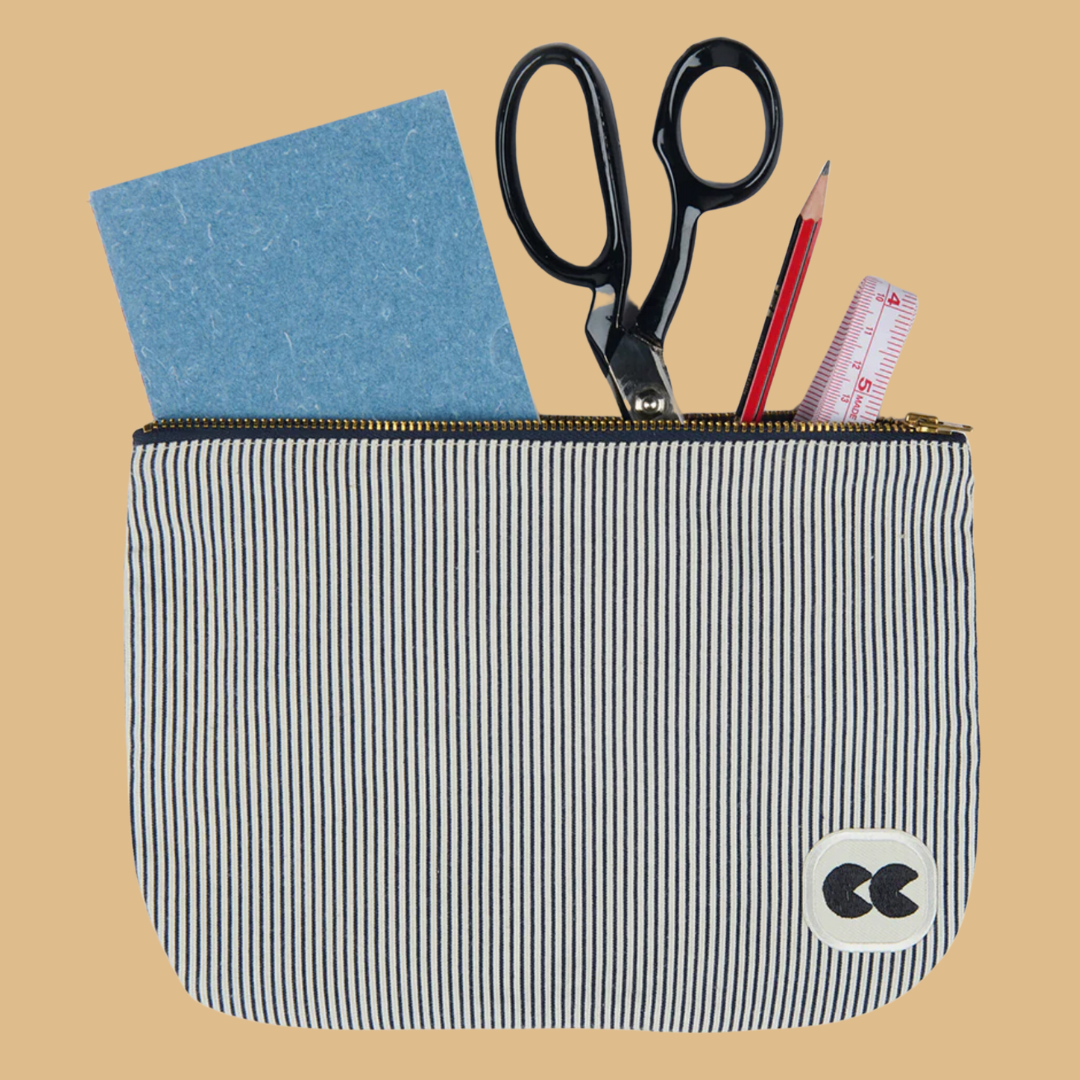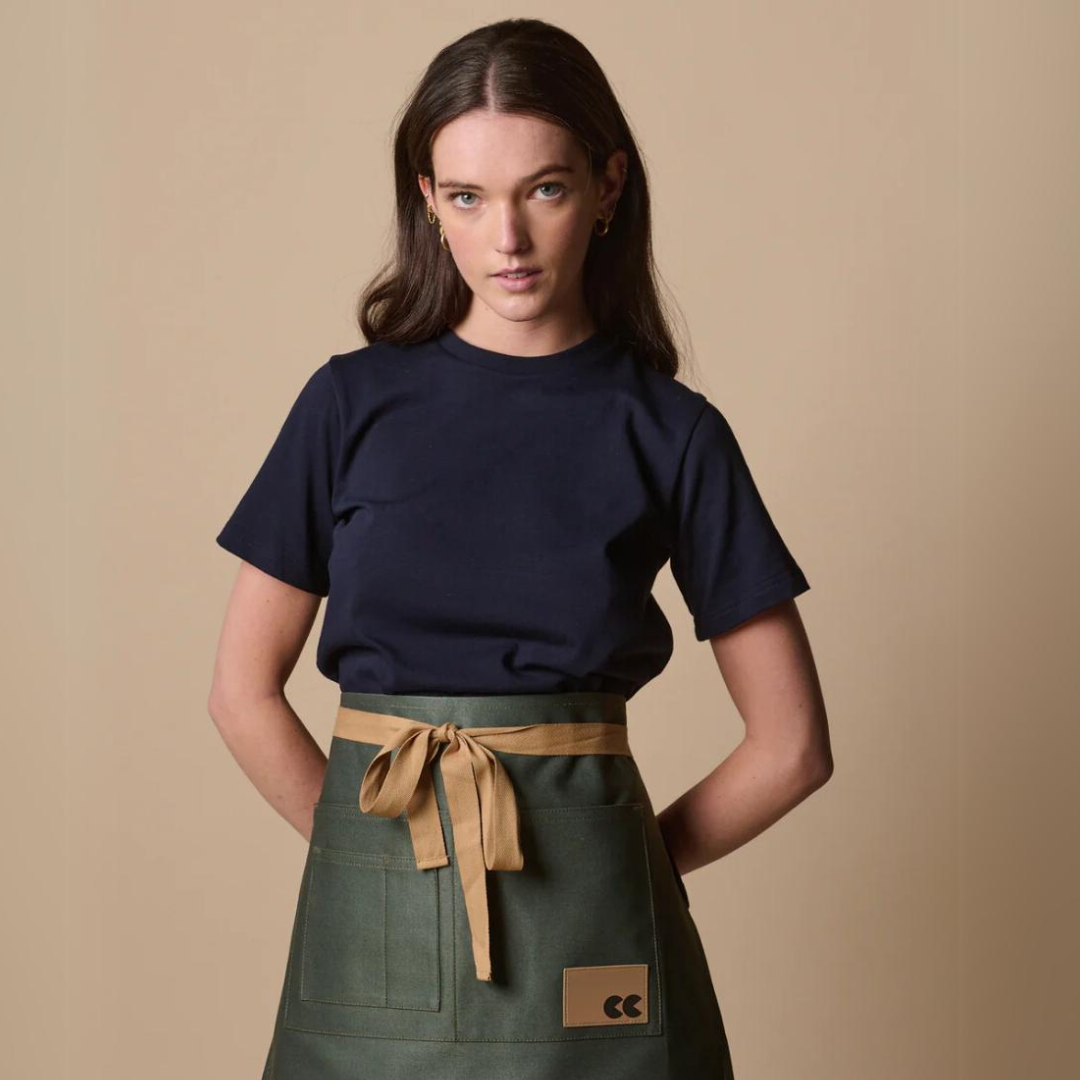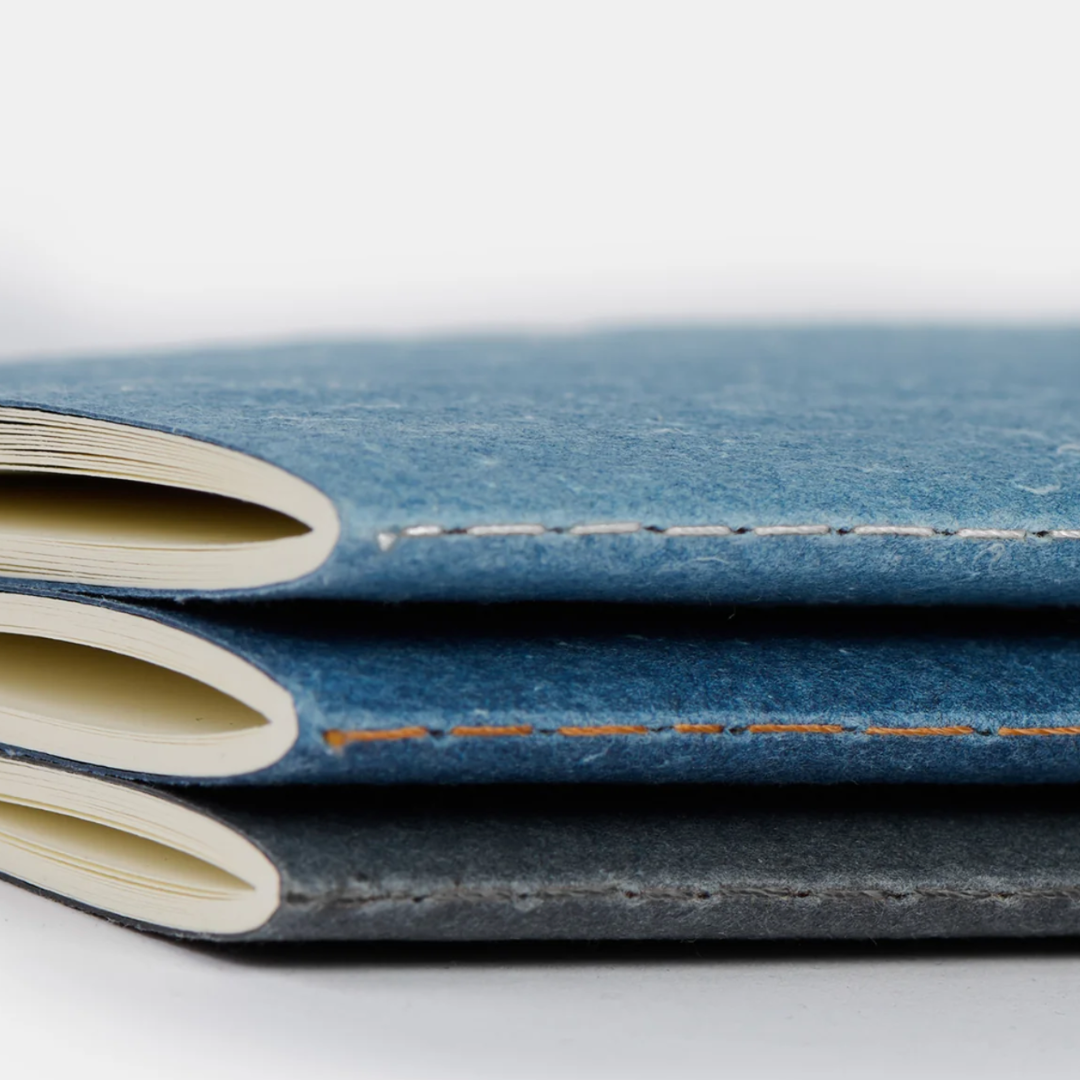We’re also trying to reduce our collective obsession with newness, allowing you to feel happy to continue wearing the clothes you have for a long time without fear that they are somehow dated or unfashionable. We’re also designing to allow for end-of-life recycling. More of our products are switching over to single material design – using just one material, such as cotton, for the entire garment is essential to clothes recycling. Starting with our Organic Athletic range, we’ve removed all polyester and any other synthetic materials, giving a garment that is genuinely single material (most ‘100% cotton’ garments contain polyester in their labels, threads, and sometimes in other areas they are not obliged by law to disclose).
Patrick was joined on the podium at WRAP by Mary Creagh, Minister for the Circular Economy, with whom he has worked many times over the past decade. On their agenda, amongst many other initiatives to reduce waste and increase recycling, is ERP, or Extended Producer Responsibility, the idea that whatever you produce, you will be responsible for forever, a fantastically important concept we wholeheartedly support. If everyone who made clothes had to agree to take them back again, I think we’d see a very different fashion landscape. At Community Clothing, we’re currently engaged in a beta trial of a new take-back initiative, where any used garments can be returned for a guaranteed minimum refund (it’s a closed trial at present, so we can’t share details just yet). We have already run clothing swaps and second-hand shops for our garments. And we’re always looking for new ways to increase the circularity of everything we do.We know we make great clothes that will last and will do everything we can to ensure they have a long life in use.
We’re also trying to reduce our collective obsession with newness, allowing you to feel happy to continue wearing the clothes you have for a long time without fear that they are somehow dated or unfashionable. We’re also designing to allow for end-of-life recycling. More of our products are switching over to single material design – using just one material, such as cotton, for the entire garment is essential to clothes recycling. Starting with our Organic Athletic range, we’ve removed all polyester and any other synthetic materials, giving a garment that is genuinely single material (most ‘100% cotton’ garments contain polyester in their labels, threads, and sometimes in other areas they are not obliged by law to disclose).
Patrick was joined on the podium at WRAP by Mary Creagh, Minister for the Circular Economy, with whom he has worked many times over the past decade. On their agenda, amongst many other initiatives to reduce waste and increase recycling, is ERP, or Extended Producer Responsibility, the idea that whatever you produce, you will be responsible for forever, a fantastically important concept we wholeheartedly support. If everyone who made clothes had to agree to take them back again, I think we’d see a very different fashion landscape. At Community Clothing, we’re currently engaged in a beta trial of a new take-back initiative, where any used garments can be returned for a guaranteed minimum refund (it’s a closed trial at present, so we can’t share details just yet). We have already run clothing swaps and second-hand shops for our garments. And we’re always looking for new ways to increase the circularity of everything we do.We know we make great clothes that will last and will do everything we can to ensure they have a long life in use.
Community is an essential thread in our DNA here at Community Clothing, and we have an ongoing commitment to working with emerging creative talent through the Universities and colleges we partner with.
Recently, we've had the pleasure of working with Phoebe Jacob, who is in her final year of studying Fashion Photography at Leeds Arts University.
Community Clothing is proud to be your one-stop-shop for head-to-toe UK-made dressing. Trainers from Bolton, socks from Sussex or Leicestershire, pants from South Wales, trousers or jeans from Blackburn, t-shirts and sweatshirts from north London, jumpers, from the south of Scottish and coats from Lancashire and Yorkshire. We’ve got you covered, literally.



